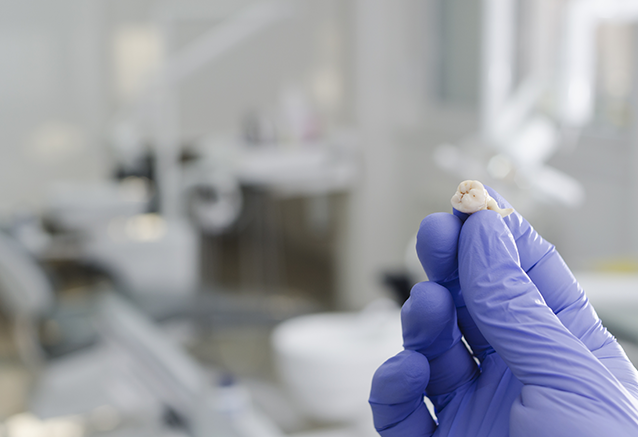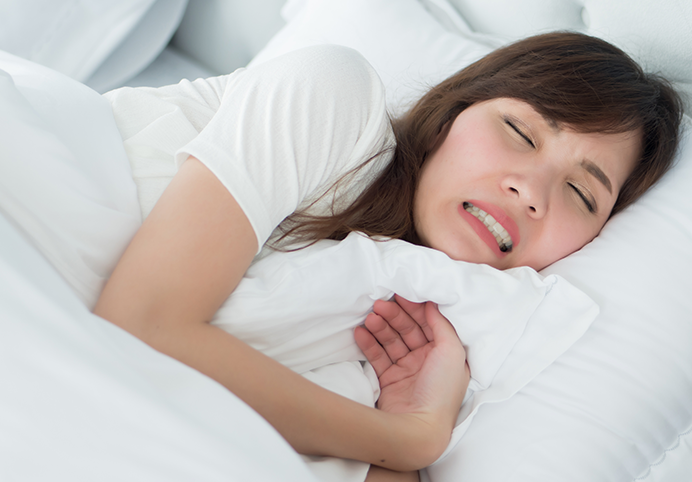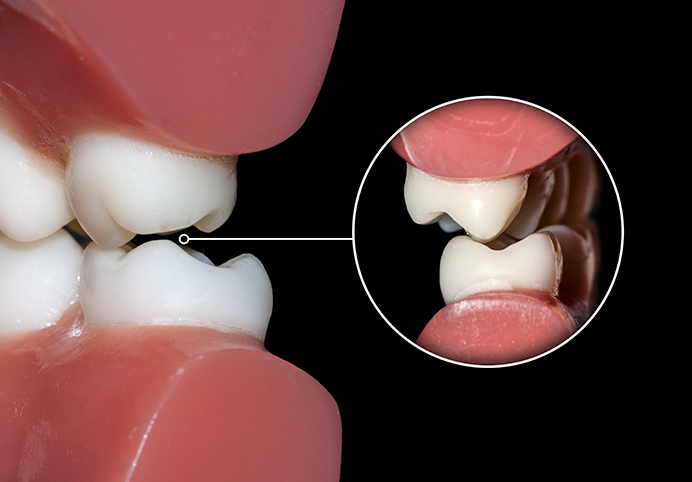Bruxism, commonly called teeth grinding or clenching, often occurs unconsciously while you’re asleep, although it can also happen during the day. It’s a fairly common condition, affecting around 10% of adults and up to 15% of children.

If not addressed, chronic bruxism can lead to other problems such as the wearing down of tooth enamel, increased tooth sensitivity, and even severe dental damage like loose or cracked teeth. It can also lead to pain in the jaw joints and muscles, and can even change the appearance of your face.

When you visit our clinic for a dental exam, the dentist will examine your teeth for signs of bruxism. During your subsequent appointments, the dentist will also examine your teeth to check if the process is progressing and determine if getting treatment is necessary.

If your dentist thinks you have, you will have to answer questions about your daily routines, general dental health, medications and sleep habits.
The dentist will check for the following to determine the ex your bruxism.
If you need serious treatment, your dentist may recommend one of the following methods to correct the damage caused by bruxism and improve your teeth.
Splints and mouthguards are for separating the teeth while sleeping to prevent the effect of grinding and clenching the teeth. The splint and mouthguard are made from cost materials or hard acrylic and placed over the upper or lower teeth.
If the grinding and clenching are severe and result in teeth sensitivity or prevent chewing properly, you may need to reshape the chewing surface of your teeth or use a crown.
Apart from the dental intervention for managing bruxism, you may need anxiety or stress management therapy, biofeedback and behavioural changes to manage this problem.
Generally, your treatment for bruxism will depend on the extent and cause of the bruxism.
Our dentists at Thousand Smiles can provide the right intervention for bruxism and treatments for damages caused by this condition. Call us today on 020 8050 0280 to book an appointment with our experienced dentist.